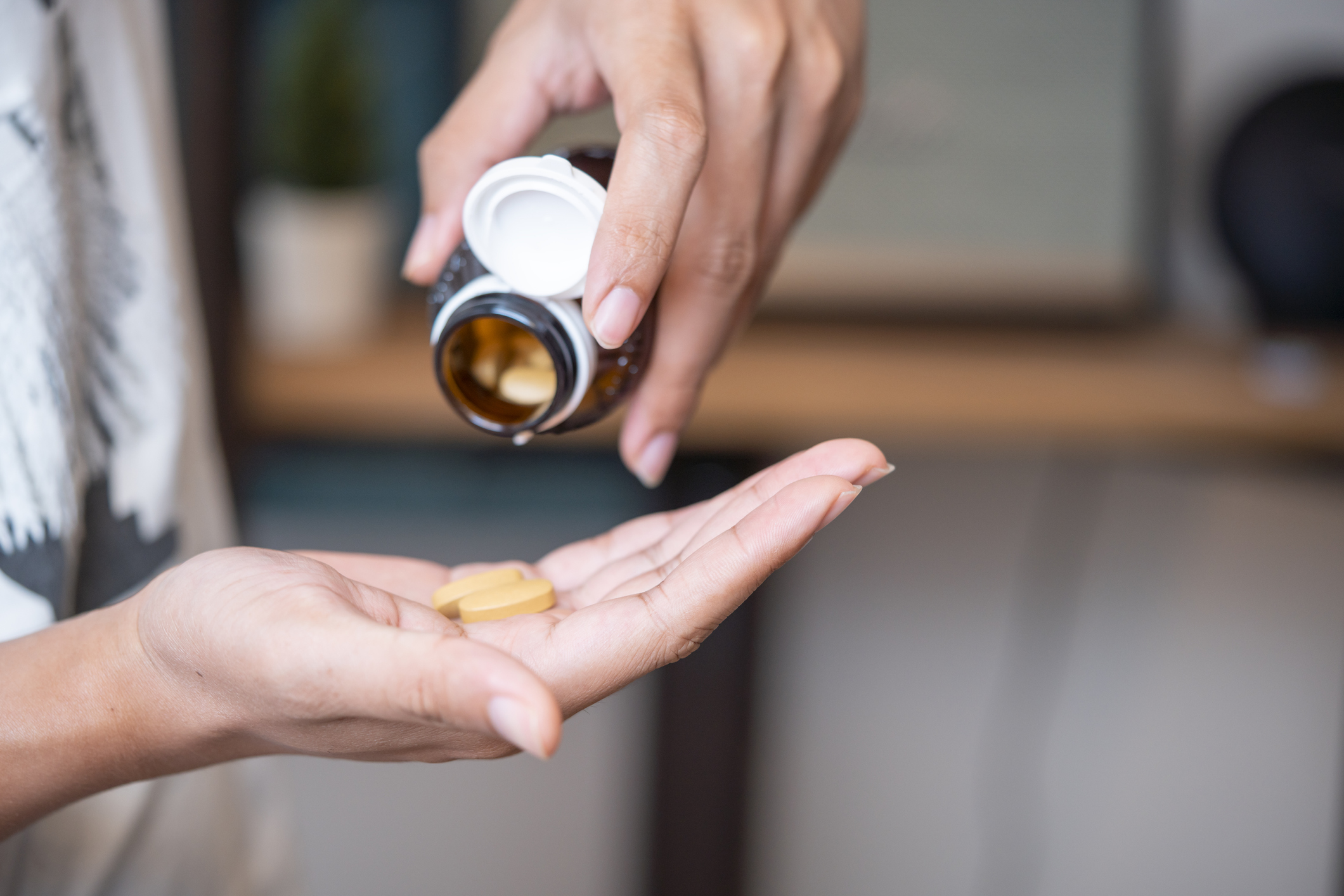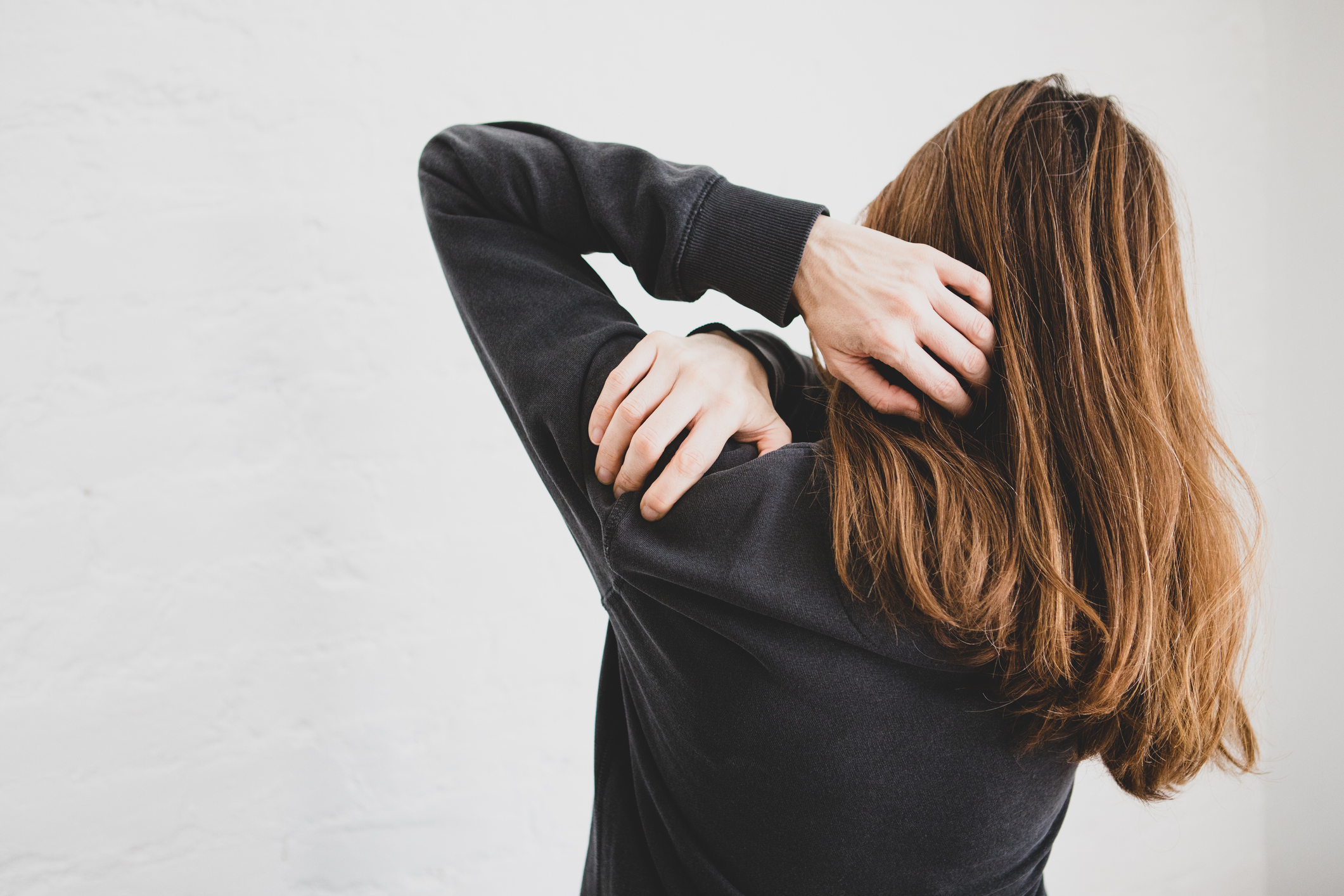
Celebrity news, beauty, fashion advice, and fascinating features, delivered straight to your inbox!
You are now subscribed
Your newsletter sign-up was successful
They affect 75% of women - so why isn't more research being done to find a cure?
PMS symptoms can be a right old pain, can't they? No one - and we repeat, no one - looks forward to four days of mood swings and stomach cramps. But for some, menstruating can be particularly miserable.
If you haven't heard of PMS, then you're likely pretty lucky with your periods. But for the majority of women - 75%, to be precise - PMS is just a part of life and something they've had to learn to live with.
This week, new stats from Yoppie have shown that 84% of women want to see PMS leave policies implemented by law within the workplace, which probably isn't surprising given that around three in four women will suffer from PMS symptoms during their lifetimes. While there are ways to manage your condition, there's no one 'cure' at current.
Isn't being a woman fun? For more on the condition, from an expert, plus how to manage your symptoms - keep reading.
What is PMS?
PMS - otherwise known as premenstrual syndrome - is the term to describe the physical and emotional symptoms that come in the run up to your period. Acne, tender breasts, bloating and mood swings are a monthly reality for three quarters of you, and for one in 20 women, these symptoms can be much more severe, disrupting daily life.
Think chronic stress, anxiety, insomnia, migraines and nausea, not to mention constipation, diarrhoea, muscle pain and severe abdominal cramps, to name a few.
Just like irregular periods and missing a period can cause stress, so too can the disruptive side effects PMS causes. Oh, and there's also adult-onset PMS, which is an acute form of the syndrome that only emerges in adults, and PMDD, a severe form of mood disturbance which occurs in the run up to a period, too.
Celebrity news, beauty, fashion advice, and fascinating features, delivered straight to your inbox!
As per the NHS website, PMS refers to the 'symptoms women can experience in the weeks before [your] period'. If it does impact your day-to-day life, do make sure you reach out to your GP for qualified help and guidance.
Stereotypically PMS is confined to your late teens and 20's, but for some women, PMS is it's worst from 40 onwards.
Is it possible to prevent PMS?
Again, according to the NHS website, the best way to manage symptoms is to eat well, exercise regularly, sleep for at least eight hours a night and reduce your stress levels. Sometimes, painkillers can help, too.
Scientific research has shown that certain supplements can ease PMS symptoms, too.
A 2013 study into chasteberry found it helpful for easing physical symptoms, like bloating and breast pain. Similarly, a 2017 paper found calcium is a good supplement to opt for to reduce both physical and psychological PMS symptoms. More research needs to be done on this one as the study was eleven years ago now, but a further 2010 research paper found that a combination of vitamin B-6 and magnesium supplementing can ease PMS symptoms including depression and insomnia.
It's worth noting here that, while the above is grounded from evidence in each paper, it's worth visiting a qualified holistic professional to work out which supplements will work best for you. Plus, you can get lots of the above vitamins and nutrients from your food, so making sure you eat a nutrient-dense and varied diet is clearly important.
Every body is different, and will respond to supplementation differently, too.
According to Amy Thomson, founder and CEO of leading women's health app and tech service Moody and author of a book of the same name, supplements can only help as a supplement to lifestyle and routine changes. "Our diet and movement are key to supporting our bodies' neuroendocrine - that's the brain & hormone connection - systems," she explains.
She advises tracking your period to make sure you know what times of the month you are most prone to things like PMS, and embracing a health routines that's focused around your hormone cycles, not just focused on diet or exercise goals.
Note here - it's really important to understand the context of how your cycle works, and the external factors that impact your rhythms and cycles, she shares.
Our guide to missed periods may just help. And remember: "stress and happiness are chemical patterns, too," she shares. "Disrupted cycles and rhythms can of course be indicators of more chronic or extreme issues, but period tracking really is an asset in a world filled with so many triggers," she explains. "It provides you with the baseline information to know when things are on track or off."

13 common PMS symptoms
Wondering how PMS symptoms actually present themselves? It's a hard one, as many of these are also side effects of other things, like PCOS or, well, just regular old day-to-day life.
If you think you may be suffering, do call your GP. Better safe than sorry.
- Acne
- Tender breasts
- Bloating
- Mood swings
- Chronic stress
- Anxiety
- Insomnia
- Migraines
- Nausea
- Constipation
- Diarrhoea
- Muscle pain
- Severe abdominal cramps.
Professor John Studd, a former consultant gynaecologist at London's Chelsea and Westminster Hospital, also encourages anyone suffering with suspected PMS symptoms to get a second opinion, too, as he shares that unfortunately, PMS is frequently misdiagnosed.
"Women are either ignored, or told they have something else, like postnatal depression or even bipolar disorder," he told The Telegraph.

PMS treatments: can you cure PMS?
Sadly not - but there are treatments that can certainly help your condition.
While both the NHS and Studd maintain that exercise and lifestyle changes can help with mild symptoms, more severe PMS will no doubt need medical intervention.
Studd uses treatments that suppress ovulation, including oestradiol patches and implants.
Sadly, he maintains that there is a lack of funding for the treatment of PMS, and specifically a lack of investigation into the use of oestrogen.
"Nobody is interested," he says. "Medical experts don’t want to know and psychiatrists don’t want to listen about the role that hormones play in affecting mood, when it’s just so obvious. Women are just supposed to tolerate it and not speak about it."
What do you reckon - should there be more funding for female health conditions like PMS? Don't forget to scroll our guides to early menopause, peri-menopause and period tracking, while you're here.
Useful resources for those suffering
First thing's first, know that you are not alone. Even though many other women suffer, that doesn't make your suffering any less relevant or important.
The NHS website's guide to PMS is a good starting point, as is the Office on Women's Health guide.
For more in-depth help, the National Association for Premenstrual Syndrome are available on 0844 815 7311 or via email at contact@pms.org.uk, or, alternatively, do check in with your local GP or sexual health clinic.

Ally is Marie Claire UK's Senior Health and Sustainability Editor, a well-regarded wellness expert, ten-time marathoner, and Boston Qualifying runner.
Utilising her impressive skillset and exceptional quality of writing, she pens investigative, review and first-person pieces that consistently demonstrate flair and originality.
As well as writing, Ally manages a team of freelancers, oversees all commissioning and strategy for her pillars, and spearheads the brand's annual Women in Sport covers, interviewing and shooting the likes of Mary Earps, Millie Bright, and Ilona Maher. Shortlisted for three BSMEs and winning one in 2022, Ally lives and breathes her verticals: her eye for a story and connections within the wellness sphere are unrivalled. Follow Ally on Instagram for more.
